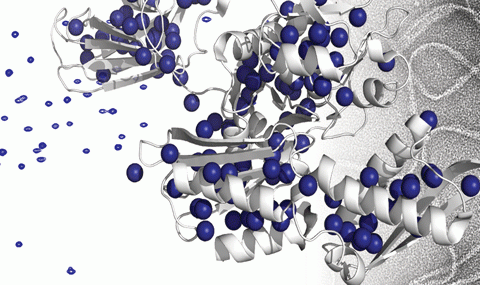Almost all proteins depend on a well-defined three-dimensional structure to obtain their functionality. In order to prevent misfolding, aggregation, and the generation of toxic species, the process of protein folding in the cell is often guided by molecular chaperones. These complex protein networks either interact with substrate polypeptides to help them fold; unfold misfolded species; dissolve aggregates; or deliver substrates to proteolysis. Very little structural information, however, is available regarding how chaperones bind their substrates or the manner in which they protect proteins from misfolding and aggregation.
This lack of information arises from the highly dynamic nature of chaperone-substrate complexes – a trait that prevents their characterization by traditional structural techniques, but fortunately for us, makes them great targets for NMR spectroscopy.
In this project we will use solution-state NMR to probe the molecular interactions between hundreds-of-kilodalton large chaperone complexes and “client” proteins, as well as the structural and dynamic features of these complexes


